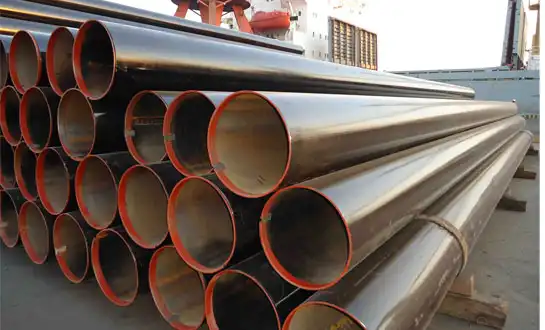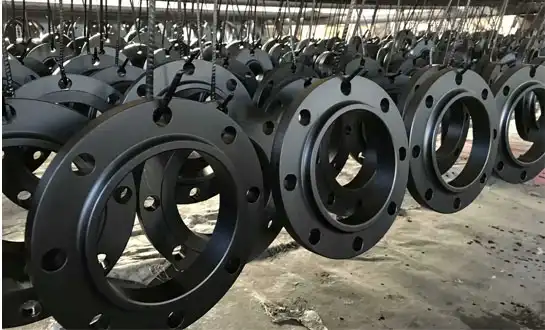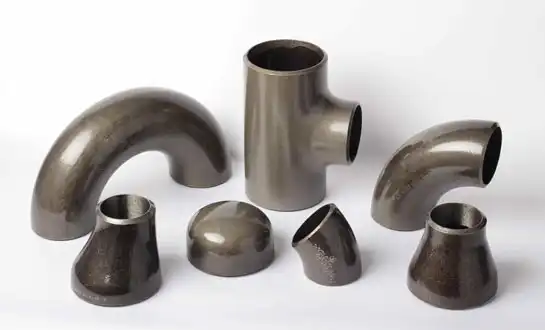What are the different applications of steel pipes?
Steel pipes serve as fundamental components across numerous industries due to their exceptional strength, durability, and versatility. These cylindrical conduits transport fluids, gases, and solids while withstanding extreme pressures, temperatures, and environmental conditions. From infrastructure development to industrial processing, steel pipes form the backbone of modern civilization's piping networks. Their applications range from delivering clean water to homes to transporting crude oil across continents. The adaptability of steel pipes allows customization through various alloys, coatings, and manufacturing processes to meet specific operational requirements. This article explores the three primary sectors where steel pipes demonstrate their indispensable value: construction and infrastructure, oil and gas industry, and industrial manufacturing applications.
Construction and Infrastructure Applications
Structural Support in Building Construction
Steel pipes play a pivotal role in modern construction as essential structural elements for buildings and bridges. Their high strength-to-weight ratio makes them ideal for constructing skeletal frameworks that support skyscrapers and large-span structures. Hollow structural sections (HSS) made from steel pipes offer superior resistance to torsional forces compared to solid beams, while using less material. Construction engineers specify steel pipes for columns, trusses, and space frames that require both compressive strength and aesthetic appeal. The circular cross-section of steel pipes provides uniform stress distribution, making them particularly valuable in earthquake-resistant designs. Additionally, galvanized steel pipes serve as durable handrails, safety barriers, and architectural features that combine functionality with visual appeal in commercial and residential projects.
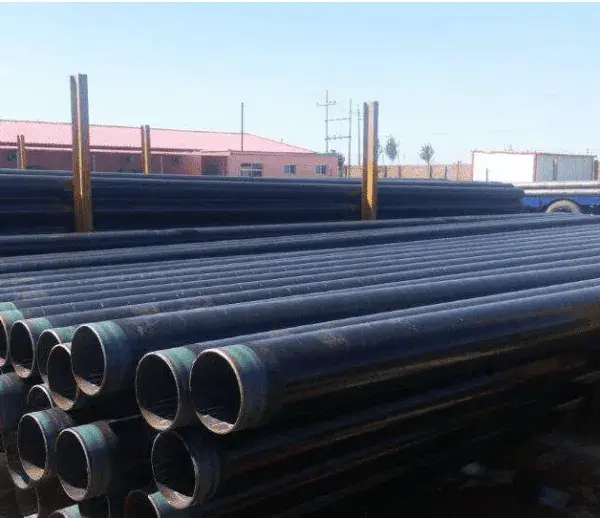
Water Supply and Drainage Systems
Municipal water infrastructure relies heavily on steel pipes for their longevity and reliability in potable water distribution. Ductile iron and carbon steel pipes dominate main supply lines due to their pressure-bearing capacity and corrosion resistance when properly coated. Larger diameter steel pipes form the backbone of urban water transmission systems, often installed underground with protective linings to prevent rust. In drainage applications, spiral-welded steel pipes handle stormwater runoff and sewage with exceptional flow characteristics. The smooth interior surfaces of steel pipes minimize friction loss compared to alternative materials, reducing pumping costs over decades of service. Water treatment plants extensively use stainless steel pipes for their hygienic properties and resistance to chemical disinfectants in purification processes.
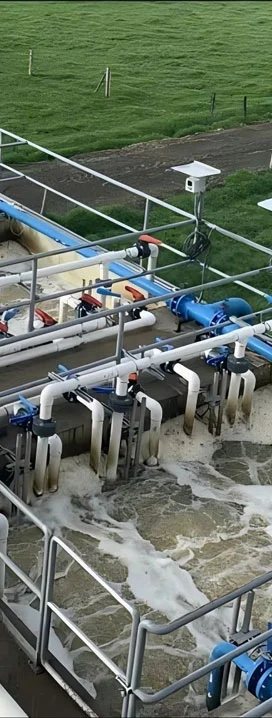
Foundation and Piling Solutions
Steel pipe piles provide critical support for structures built on weak or unstable soils, particularly in coastal areas and seismic zones. These deep foundation elements are driven or drilled into the ground to transfer building loads to more stable subsurface layers. Large-diameter steel pipes filled with concrete combine the advantages of both materials, creating composite columns with extraordinary load-bearing capacity. Bridge foundations frequently employ steel pipe piles due to their resistance to water currents and marine environments when properly protected. Micro piles made from smaller steel pipes offer precise foundation solutions for urban construction projects with space constraints or vibration sensitivity. The dimensional consistency and jointing reliability of steel pipes make them superior to other piling materials in terms of predictable performance and quality control.
Oil and Gas Industry Applications
Pipeline Transportation Systems
The energy sector depends on high-grade steel pipes for safe and efficient transportation of hydrocarbons over vast distances. Specially manufactured API 5L steel pipes form extensive networks that carry crude oil, natural gas, and refined products from production sites to refineries and distribution centers. These pipelines utilize large-diameter steel pipes with wall thicknesses carefully engineered to withstand operating pressures that may exceed 1000 psi. Advanced coatings and cathodic protection systems work synergistically with the inherent strength of steel pipes to prevent leaks and environmental contamination. Offshore applications require even more robust steel pipe solutions with additional wall thickness to resist deep-water pressures and corrosive seawater conditions. The weldability and fracture toughness of modern pipeline-grade steel pipes make them uniquely suited for these critical energy infrastructure projects.
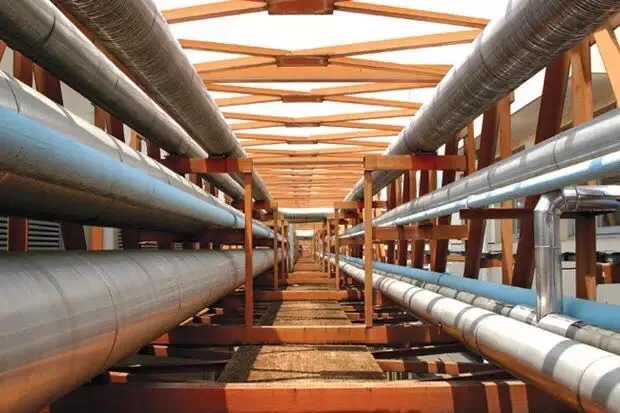
Drilling and Well Construction
Oilfield operations employ various specialized steel pipes throughout the drilling and production lifecycle. Casing strings made from heavy-weight steel pipes stabilize wellbores and prevent formation collapse during drilling operations. Production tubing strings inserted inside casing allow hydrocarbon flow to the surface while withstanding downhole pressures and corrosive fluids. Drill pipes, manufactured from high-strength alloy steel pipes, transmit rotational torque and drilling fluid to the bit at extreme depths. These steel pipes must endure tremendous mechanical stresses, including tension, torsion, and internal pressure, while resisting hydrogen sulfide cracking and other downhole hazards. The threaded connections on oilfield steel pipes undergo rigorous engineering to maintain integrity under cyclic loading conditions throughout the well's productive life.
Refinery and Processing Equipment
Petrochemical facilities incorporate steel pipes throughout their complex processing systems, where they handle aggressive chemicals at elevated temperatures and pressures. Seamless steel pipes dominate refinery applications due to their uniformity and reliability in critical service conditions. Heat exchanger tubes, often made from stainless or alloy steel pipes, facilitate efficient heat transfer between process streams. Furnace tubes constructed from high-temperature resistant steel pipes operate continuously at temperatures exceeding 1000°F in cracking units. The dimensional precision and metallurgical consistency of steel pipes ensure safe operation of distillation columns, reactors, and other pressure vessels that form the heart of modern refineries. Special cladding and lining technologies further enhance the performance of steel pipes in particularly corrosive refinery services.
Manufacturing and Industrial Uses
Mechanical and Hydraulic Systems
Manufacturing plants utilize steel pipes extensively in equipment frameworks, hydraulic systems, and power transmission applications. Precision steel tubes serve as cylinders, actuators, and motion guides in heavy machinery and automation systems. Hydraulic steel pipes must maintain integrity under pulsating pressures that may exceed 5000 psi in some industrial applications. The machining characteristics and dimensional stability of cold-drawn steel pipes make them ideal for bearing housings and other precision components. Pneumatic systems rely on seamless steel pipes to distribute compressed air throughout factories without leakage or pressure loss. Conveyor systems frequently incorporate steel pipes as structural members and rollers that withstand continuous operation in demanding industrial environments. The versatility of steel pipes allows engineers to design integrated solutions that combine structural support with fluid conveyance in compact machine layouts.
Heat Exchanger and Boiler Tubes
Thermal energy systems depend on high-performance steel pipes for efficient heat transfer in industrial processes. Boiler tubes made from carbon or alloy steel pipes form the pressure boundary in steam generation systems, operating under extreme thermal cycling conditions. Condenser tubes, typically fabricated from corrosion-resistant steel pipes, handle large heat transfer duties in power plants and refrigeration systems. Finned steel pipes enhance heat exchange efficiency in air-cooled applications ranging from HVAC systems to industrial process coolers. The thermal conductivity and pressure containment capabilities of steel pipes make them superior to alternative materials in most heat transfer applications. Specialized steel pipe alloys have been developed to resist oxidation and creep deformation in high-temperature service, extending equipment life and reducing maintenance requirements.
Material Handling and Conveyance
Bulk material handling operations employ steel pipes for durable, low-friction transport of powders, granules, and slurries. Pneumatic conveying systems use steel pipes to move materials with compressed air, taking advantage of their abrasion resistance and smooth interior surfaces. Screw conveyors incorporate steel pipe casings that contain rotating augers for precise material dosing in processing plants. Steel pipes form the structural framework for bucket elevators and other vertical conveying systems that handle heavy loads continuously. In mining applications, thick-walled steel pipes transport ore slurries over long distances, resisting both internal abrasion and external environmental factors. The food processing industry utilizes polished stainless steel pipes to maintain product purity while meeting stringent sanitary standards. These diverse applications demonstrate how steel pipes solve material handling challenges across virtually every industrial sector.
Conclusion
Steel pipes serve as indispensable components across construction, energy, and industrial sectors due to their unmatched combination of strength, durability, and adaptability. From skyscrapers to oil pipelines to manufacturing plants, these versatile conduits enable modern infrastructure and industrial processes. Continuous advancements in steel pipe technology further expand their applications while improving performance and longevity in demanding environments.
HEBEI RAYOUNG PIPELINE: Premium Steel Pipe Solutions for Your Specific Needs
At HEBEI RAYOUNG PIPELINE TECHNOLOGY CO., LTD, we manufacture high-quality steel pipes that meet the exacting demands of diverse industrial applications. Our ISO 9001:2015 certified production processes ensure consistent quality across our comprehensive range of carbon steel, alloy steel, and stainless steel pipes. Whether you need standard pipes for construction projects or specialized pipes for extreme service conditions, our technical team can provide engineered solutions tailored to your requirements. Contact us today at info@hb-steel.com to discuss how our steel pipe products can enhance your project's performance and reliability.
References
1. API 5L - Specification for Line Pipe
2. ASTM A53 - Standard Specification for Pipe, Steel, Black and Hot-Dipped
3. ASME B36.10M - Welded and Seamless Wrought Steel Pipe
4. EN 10219 - Cold formed welded structural hollow sections
5. ISO 3183 - Petroleum and natural gas industries - Steel pipe for pipeline transportation systems
6. AWWA C200 - Steel Water Pipe - 6 In. and Larger

Need a quote? Want to see samples? Just say hello. We’re friendly. We’re fast. And we’re ready when you are.
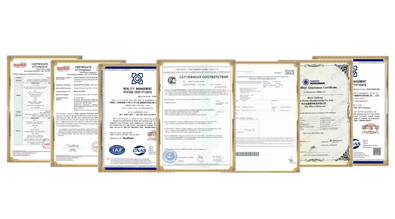
Welcome to RAYOUNG – Strong Pipes, Stronger Promise
